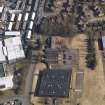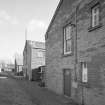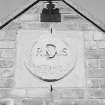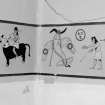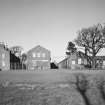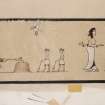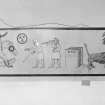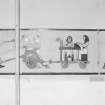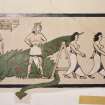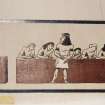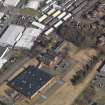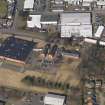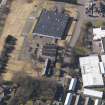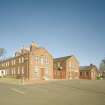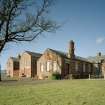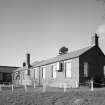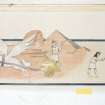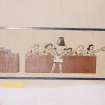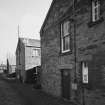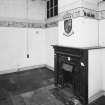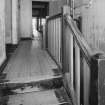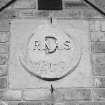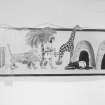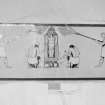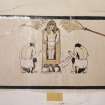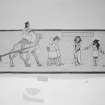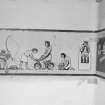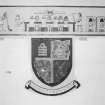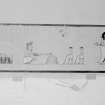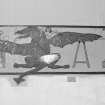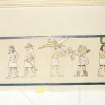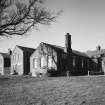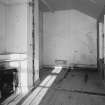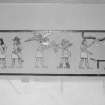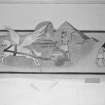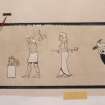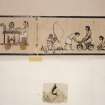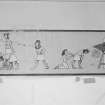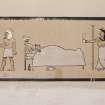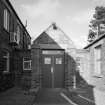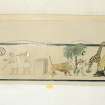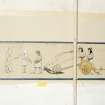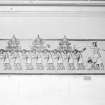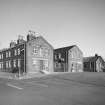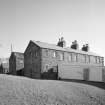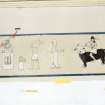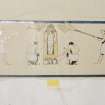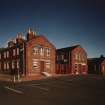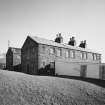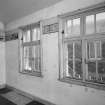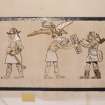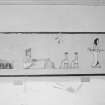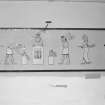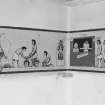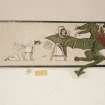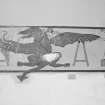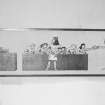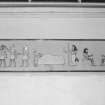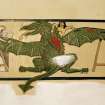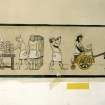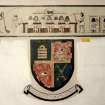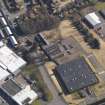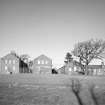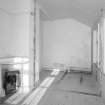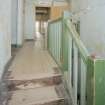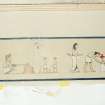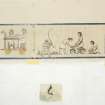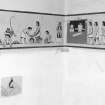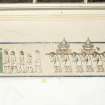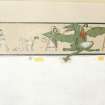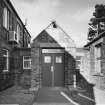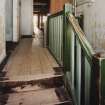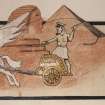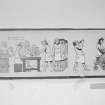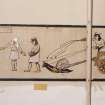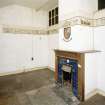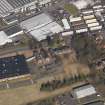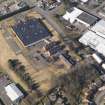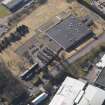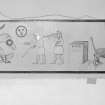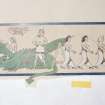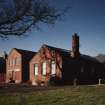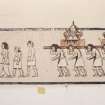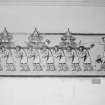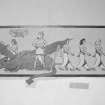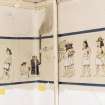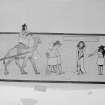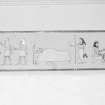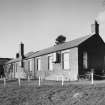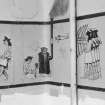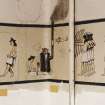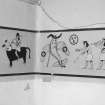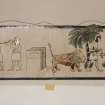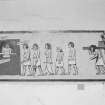Donibristle Airfield, Officers' Mess
Building (20th Century), Mess (20th Century)
Site Name Donibristle Airfield, Officers' Mess
Classification Building (20th Century), Mess (20th Century)
Alternative Name(s) Hms Merlin; Bourns Electrics
Canmore ID 136132
Site Number NT18SE 30.03
NGR NT 16170 84270
Datum OSGB36 - NGR
Permalink http://canmore.org.uk/site/136132
- Council Fife
- Parish Dalgety
- Former Region Fife
- Former District Dunfermline
- Former County Fife
NT18SE 30.03 16170 84270
Former Officers' Mess now being used by an electronics firm. In the interior, one room retains a series of painted wall murals on a dado frieze.
Information from RCAHMS (DE) November 1998
Archaeological Evaluation (11 December 2013 - 12 December 2013)
AOC Archaeology Group was commissioned by their client Springfield Properties PLC to undertake an archaeological evaluation on a proposed development of a brownfield site set within the grounds of the former Donibristle Airfield, Dalgety Bay, Fife (NGR: NT 1610 8427). Works consisted of an archaeological evaluation of eight trenches totalling 505 linear metres. The evaluation revealed no significant archaeological remains. It was apparent that the area available for archaeological evaluation had been heavily truncated by recent landscaping.
Information from Rob Engl (AOC), 18 December 2013
OASIS ID aocarcha1-167104
Archaeological Evaluation (11 December 2013 - 12 December 2013)
NT 1610 8427 An evaluation was undertaken, 11–12 December 2013, in advance of the proposed development of a brownfield site set within the grounds of the former Donibristle Airfield. A total of eight trenches were excavated, covering 505 linear metres. The area under investigation had been heavily truncated by recent landscaping and there were no finds or
features of archaeological significance.
Archive: RCAHMS (intended)
Funder: Springfield Properties PLC
Rob Engl – AOC Archaeology Group
(Source: DES)
Project
Recording Scotland's graffiti project was designed to review the range of historic and contemporary graffiti art across Scotland. It involved desk-based assessment and fieldwork at a number of example sites, to consider recording methodologies and dissemination practices.
Between 2016 and 2017, phase 1 of the project aimed to:
Aim 1: review a range of historic and contemporary graffiti art from across Scotland, already present in Canmore.
Aim2: undertake a research review of previous approaches to recording graffiti art in Canmore and other HERs, review and develop the current Thesaurus terms.
Aim 3: test and develop a range of recording methods within the following programmes or projects: Discovering the Clyde programme (1223), Scotland’s Urban Past (1222), Architecture and Industry projects, such as Urban Recording Projects (1028), Area Photographic Survey (311) and the Tomintoul and Glenlivet Landscape Partnership (1167).
Aim 4: the following test sites will be considered for research into the range of historic and contemporary graffiti. They will be analysed to demonstrate the different ages, contexts, styles and survivals of historic and contemporary graffiti: Polphail village (Canmore ID 299112), Scalan farmstead (170726), Cowcaddens Subway Station (243099), Croick Parish Church (12503), Dalbeattie Armament Depot (76279) and Dumbarton Rock (43376).
Aim 5: to research the potential for social media to play a role in crowd-sourcing information and archiving Scotland’s graffiti art.
In 2017-2019, phase 2 of the project aimed to:
Aim 1: To enhance the NRHE to the point at which it can be said to adequately represent the broad range of historic and modern graffiti that is evident throughout Scotland, and to explore ways by which that information can best be disseminated.
Aim 2: To develop guidelines that will convey the HES approach to researching and recording graffiti.
Aim 3: To write a specification for a book on Scotland’s graffiti.
Aim 4: To develop external partnerships to explore further ways to record graffiti and to identify and explore potential funding streams to enable further knowledge exchange and research.
The project was managed by Dr Alex Hale, with contributions from staff across Herirtage and Commercial and Tourism directorates.





































































































